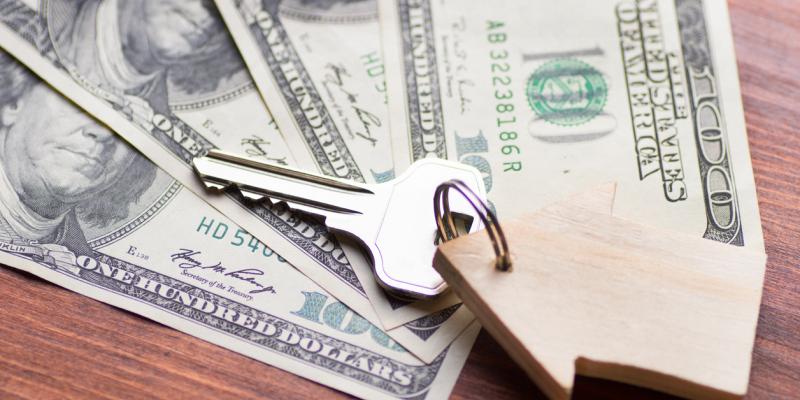
Buying a home is a major milestone, but the expenses go beyond just the mortgage. Property taxes, insurance and other hidden costs can add up quickly.
April is Financial Literacy Month, making it the perfect time to take a closer look at the true cost of buying a home. In this blog, we’ll break down some of these expenses so you can budget wisely, avoid surprises at the closing table and maintain long-term financial stability.
Property Taxes
Property taxes are annual taxes paid by homeowners to local governments based on the assessed value of their property and the local tax rate. Property taxes can increase over time as property values rise or tax rates change, making them an important ongoing cost for home buyers to budget for.
Insurance
Insurance is often included in your closing costs, and can be added to your mortgage payment once you’ve purchased your home. Here are some of the types of insurance to consider:
- Homeowner’s Insurance
Homeowner’s insurance is a policy that protects homeowners from financial loss due to damage, theft or liability. Lenders require homeowner’s insurance as a condition for a mortgage, and the cost varies based on factors like home value, location, coverage level and risk factors. You will want to prepare for this expense while you are saving up for a home purchase.
- Wind/Flood Insurance
Wind and flood insurance may be required depending on your potential home’s location and lender. Standard homeowner’s insurance usually covers wind damage, but in hurricane-prone areas, a separate windstorm policy may be needed. Flood damage isn’t covered by standard policies, and homes in FEMA-designated high-risk flood zones typically require separate flood insurance. Before you get to the closing table, do your research to understand what types of special insurance your home might need.
- Private Mortgage Insurance (PMI)
PMI is a type of insurance that protects the lender. It is typically required for conventional loans when a home buyer makes a down payment of less than 20%. It is added to the monthly mortgage payment and can increase overall housing costs. If you are putting down less than 20%, be prepared to pay this insurance premium until you reach the threshold set by your lender.
Closing Costs
Closing costs are the fees and expenses that homebuyers and sellers must pay when finalizing a real estate transaction. These costs typically range from 2% to 5% of the home’s purchase price and are due at closing. Buyers should budget for these costs in addition to their down payment, though some closing costs may be negotiable or covered by the seller through concessions. Some examples of closing costs are:
- Loan Origination Fees
Loan origination fees are charged by the lender for processing the mortgage application, underwriting and funding the loan.
- Appraisal Fees
Appraisal fees are paid to a professional appraiser to assess the home’s market value, which lenders require to ensure the property is worth the loan amount.
- Title Insurance
Title insurance protects both the lender and buyer against potential legal claims or disputes over property ownership.
Start-Up Costs
Start-up costs are the initial expenses required to move in and make the home livable beyond just the down payment and closing costs. These can include furniture and appliances, utility set-up fees, home improvements, moving costs and security deposits. Your lender will want to be sure you have funds in reserve to cover these costs before closing on the loan.
Homeowner’s Association (HOA) Fees
HOA fees are regular payments made by homeowners within a community or development governed by a homeowner’s association. These fees are used to cover the costs of maintaining shared spaces and services, such as landscaping, community amenities and common area upkeep. The amount of the fee can vary depending on the community, the services provided and the overall size of the property. Not all homes have HOA fees—they typically apply only to properties within planned communities.
Buying a home comes with more expenses than just the down payment and mortgage. Costs like closing fees, insurance and property taxes can add up quickly, making it essential to budget beyond the purchase price. Understanding these financial obligations before you reach the closing table can help you avoid surprises and make confident, informed decisions. This Financial Literacy Month, take the time to educate yourself on the full cost of buying a home so you can plan ahead and start home ownership on solid financial ground.